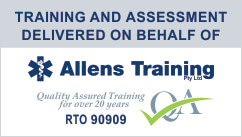First Aid Course Northern Beaches – March / April and May dates available
First Aid and CPR training courses are now available for March, April and May. Simple Instruction is offering HLTAID003, HLTAID001, HLTAID004 training courses at our centrally located training centre within the Dee Why RSL (DYRSL).
Suggested training providers include St John Ambulance
All newly qualified Level 2 and 3 entrants to the early years workforce must have a paediatric first-aid (PFA) certificate within three months of starting work in order to be included in ratios.
The requirement, originally intended to start in September 2016, has been added to the revised Early Years Foundation Stage framework, effective from 3 April.
The EYFS now says all entrants who completed a Level 2 or 3 qualification on or after 30 June 2016 must have either a full PFA or an emergency PFA certificate.
Newly qualified entrants include staff who had been apprentices or long-term students and have gained a Level 2 or 3.
Those who started work between 20 June 2016 and 2 April 2017 must hold either of the certificates by 2 July 2017 to be included in ratios.
Providers can make an exemption if staff are unable to gain a certificate due to disability.
Annex A of the framework provides further detail of what training has to be completed in order to obtain either a full or emergency PFA certificate (see box, right).
It states that settings are responsible for identifying and selecting a ‘competent’ training provider to deliver their PFA training. A number of training providers are suggested, including St John Ambulance, the Red Cross and St Andrew’s First Aid.
Training for the full PFA should last a minimum of 12 hours, and a minimum of six hours for the emergency PFA.
The certificates should be displayed in settings or made available to parents and renewed every three years.
OTHER CHANGES
The revised framework also incorporates the new Level 3 qualification requirements, replacing the GCSE-only rule.
It states, ‘To count in the ratios at Level 3, staff holding an Early Years Educator qualification must also have achieved a suitable Level 2 qualification in English and maths as defined by the Department for Education on the Early Years Qualifications List published on GOV.UK.’
Other updates include references to the Prevent Duty guidance, and training for staff on female genital mutilation.
The new framework says ‘training made available by the provider must enable staff to identify signs of possible abuse and neglect at the earliest opportunity, and to respond in a timely and appropriate way. These may include – any reasons to suspect neglect or abuse outside the setting, for example in the child’s home, or that a girl may have been subjected to (or is at risk of) female genital mutilation.’
There is also information about DBS disclosures and barred list, which reminds providers to check disclosures for employees and consider whether they contain any information that would suggest a person is unsuitable for a position before they start work with children.
It says providers can check the status of a disclosure if a potential or existing employee has subscribed to the online DBS Update service. Where a check identifies there has been a change to the disclosure details, an enhanced DBS disclosure must be applied for.
PHYSICAL ACTIVITY
Mention is also given to the 2011 physical activity guidelines, to which providers ‘may wish to refer’. Dr Lala Manners, director of Active Matters, said this does not go far enough.
In a letter to Nursery World, Dr Manners said, ‘The Chief Medical Officers’ guidelines have been relegated to a footnote on page eight, as “guidance on physical activity that providers may wish to refer to”.
‘What an abject dereliction of duty by all concerned. Where is the incentive for anyone to read, let alone implement or embed, these guidelines in daily practice?
‘How come an initiative that was deemed important enough by the Department of Health to be included in the Obesity Strategy is considered completely superfluous by the DfE?’
Read Dr Manners’ letter.
PAEDIATRIC FIRST-AID TRAINING
The full PFA training covers:
What to do if a child is having an anaphylactic shock or electric shock;
has suffered burns or scalds, a suspected fracture, head, neck or back injuries;
has suspected poisoning, a foreign body, eye injury, bite or sting;
is suffering from the effects of extreme heat or cold; or
is having a diabetic emergency, an asthma attack, allergic reaction or suspected meningitis.
Understanding the role and responsibilities of a paediatric first-aider.
The emergency PFA covers:
Assessing an emergency situation and prioritising what action to take.
Helping a baby or child who is unresponsive and breathing normally or not breathing normally.
Helping a baby or child having a seizure, choking or bleeding, or suffering from shock caused by severe blood loss.
Great news in the UK that many more workers are going to require a first aid course so that they can work. Make sure you get yourself trained at a local first aid course so you can get ready in case of an emergency or if this requirement comes to fruition in Australia.
